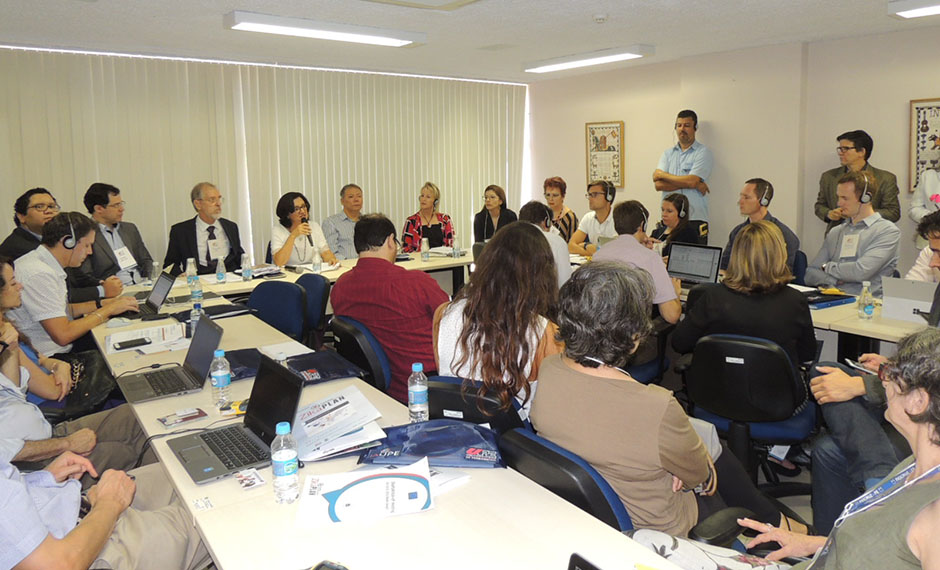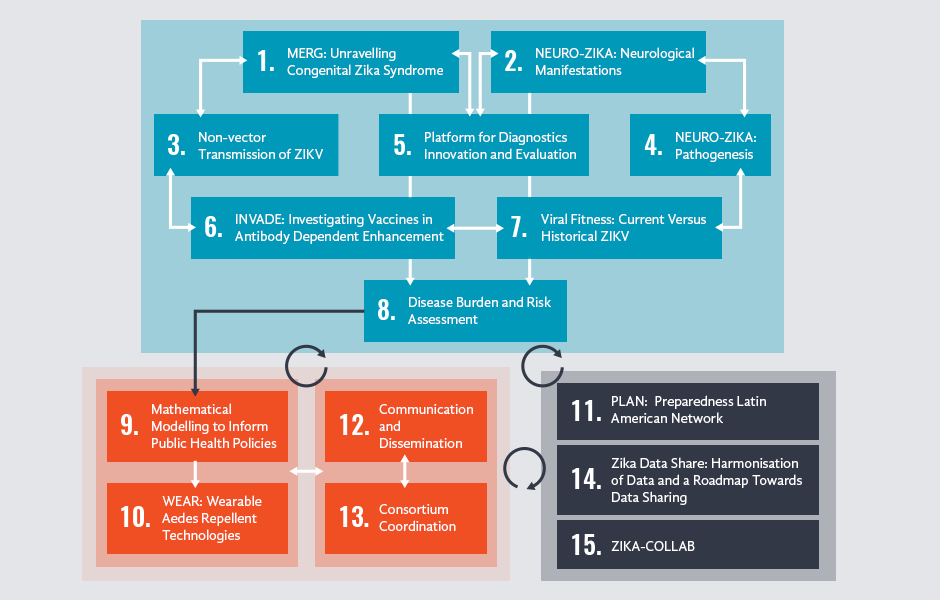ZikaPLAN takes a comprehensive approach to tackling the Zika threat, encompassing epidemiological surveillance, clinical studies, the development of innovative diagnostic tools and control strategies, in addition to education and knowledge-sharing.

ZikaPLAN’s work is organized along two main axes: the objectives of addressing Zika and preparing for beyond Zika.
Addressing Zika
The aim is to tackle key knowledge gaps in the recent Zika virus (ZIKV) outbreak and prepare for the next outbreak, by:
- determining how many of those infected by Zika virus will have adverse outcomes
- describing the range of clinical complications over time in those children born with congenital Zika syndrome (CZS)
- assessing the complications associated with CZS and their impact on families
- defining the spectrum of neurological diseases associated with Zika virus infection, in the central and peripheral nervous system
- discovering how ZIKV enters nerves and causes damage to the central nervous system and peripheral nerves
- investigating the extent of and factors associated with sexual transmission of Zika in human and animal models
- developing and validating tools for the diagnosis and surveillance of ZIKV
- inventing better diagnostic tests to distinguish dengue from Zika
- identifying the extent of interaction between the Zika and dengue viruses and whether previous infection with one of the viruses has an impact on the severity of infection by the other
- evaluating the evolution of the ZIKV outbreak in Brazil and predicting future outbreaks worldwide
- developing effective communication strategies and messages to inform affected communities
Preparing for beyond Zika
The aim is to build a sustainable emerging infectious disease preparedness and response capacity in Latin-America, by:
- establishing mathematical models to determine the best vector control measures
- developing novel wash-in detergent formulations and long-lasting plastic technologies for mosquito repellent
- creating, with ZIKAlliance and ZIKAction, a Latin-American and Caribbean network, REDe, to address the broader issue of building local capacity to prepare for and rapidly launch a large-scale research response to emerging infectious disease threats.
ZikaPLAN is contributing to the development of an inter-epidemic research plan, policy recommendations, training, research networks and dissemination strategies designed to permanently strengthen local capacities, beyond the four years of the project. The three consortia have common bodies for the global management of scientific programs, communication, and ethical, regulatory and legal issues.
Working Groups
- MERG: Unravelling Congenital Zika Syndrome
- NEURO-ZIKA: Neurological Manifestations of Zika
- Non-vector Transmission of ZIKV
- NEURO-ZIKA: Pathogenesis
- Platform for Diagnostics Innovation and Evaluation
- INVADE: Investigating Vaccines in Antibody Dependent Enhancement
- Viral Fitness: Current Versus Historical ZIKV
- Disease Burden and Risk Assessment
- Mathematical Modelling to Inform Public Health Policies
- WEAR: Wearable Aedes Repellent Technologies
- ZIKA Collaborative Establishment of a Latin American Preparedness Network (PLAN)
- Dissemination and Communication
- Consortium Coordination
- Zika Data Share: Harmonisation of Data and a Roadmap Towards Data Sharing
- ZIKA-COLLAB: Intra-consortium Collaboration

ZikaPLAN Working Groups (WP)